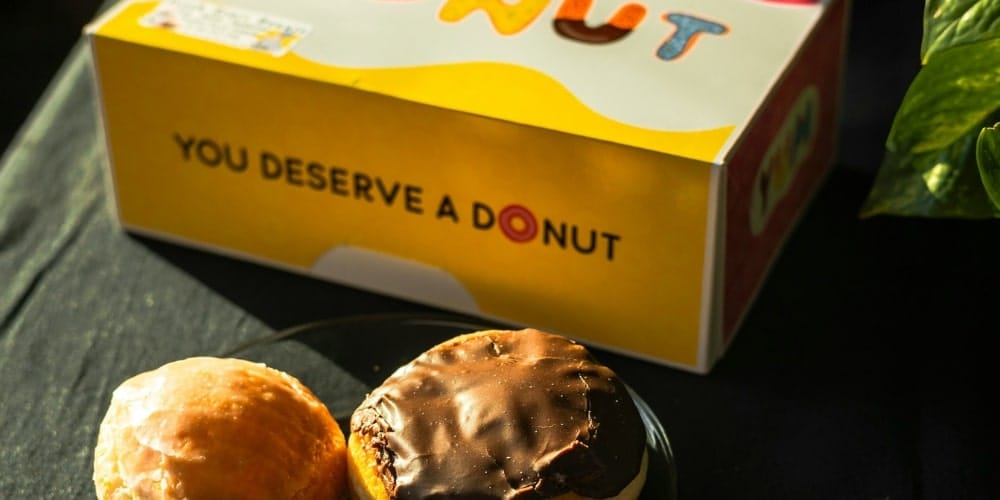Finding the perfect custom cake boxes can be a challenge. With numerous suppliers promising top-notch quality and unique designs, it's important to ask insightful questions before making a decision. This approach ensures that your investment aligns with your aesthetic preferences and practical needs while also reflecting your business values. In this article, we’ve put together a checklist of the top 10 questions to consider when evaluating custom cake box suppliers. This guide will help you navigate the market and choose a partner who can deliver exceptional results for your café or bakery.
Why Asking the Right Questions Matters
When it comes to ordering packaging for your shop, due diligence is key. Asking the right questions during the sourcing process empowers you to make informed decisions and avoid costly mistakes. For cafés and bakeries, the packaging is about aesthetics, as well as ensuring that your products arrive in pristine condition, while also reinforcing your brand’s promise of quality.
By probing into aspects like production timelines and quality control measures, you gain deeper insights into the supplier’s capabilities and reliability. For instance, understanding their eco-friendly practices only supports a greener planet and appeals to environmentally conscious customers.
Similarly, clarifying turnaround times and minimum order requirements can help you plan your inventory and marketing strategies more effectively. In essence, the questions you ask act as a roadmap, guiding you toward a supplier that aligns with your brand’s standards and operational needs. This proactive approach not only mitigates risks but also builds a foundation for a long-term, successful partnership in custom packaging.
The Top 10 Questions to Ask
Below are the top 10 questions every café or bakery owner should ask, along with explanations and key points to consider for each.
1. What materials do you use, and are they sustainable or eco-friendly?
Why It Matters:
The materials used in your packaging affect the overall look of your product, and play a role in its durability and environmental impact. With growing consumer demand for sustainable practices, understanding the material options is crucial.
Key Points to Consider:
- Ask about the types of paper, cardboard, or other materials used.
- Inquire if the materials are recyclable, biodegradable, or sourced from sustainable processes.
- Discuss any certifications or industry standards the materials meet.
2. Can you customize the design to match my brand's aesthetic?
Why It Matters:
Customized packaging is a powerful tool for reinforcing your brand identity. Ensuring that the supplier can deliver a design that aligns with your brand’s style is essential for maintaining consistency across all customer touch points.
Key Points to Consider:
- Determine the level of design customization available (e.g., color, logo placement, structural design).
- Request examples or a portfolio of previous custom designs.
- Confirm if there are any design limitations or additional costs for advanced customization.
3. What is your production turnaround time?
Why It Matters:
Timely production and delivery are critical, especially for businesses with seasonal peaks or tight launch deadlines. Understanding turnaround times helps you plan your inventory and marketing campaigns without disruption.
Key Points to Consider:
- Ask for average production lead times.
- Clarify if there are expedited options for rush orders or shipping.
- Understand how production timelines might change during high-demand periods.
4. Do you have minimum order quantity (MOQ) requirements?
Why It Matters:
Minimum order requirements can significantly impact your budget and inventory management. Knowing the MOQ upfront allows you to assess whether the supplier’s terms align with your business needs and current scale of operations.
Key Points to Consider:
- Inquire about the minimum order quantities for custom cake boxes.
- Discuss flexibility if your order volume is lower, especially for startups or small bakeries.
- Ask if there are cost benefits for larger orders, and understand the pricing structure at different order volumes.
5. What quality control processes do you have in place?
Why It Matters:
Quality control ensures that every custom cake box meets your expectations and industry standards. Reliable quality control processes help prevent defects and ensure consistency across your orders.
Key Points to Consider:
- Request details on their quality assurance protocols and inspections.
- Ask about any certifications or compliance with food safety and packaging standards.
- Inquire how they handle quality issues or production errors, and what their process is for reprints or corrections.
6. Can I see samples of your previous work?
Why It Matters:
Seeing tangible examples of a supplier’s work can give you a clear idea of their design capabilities, material quality, and overall finish. It also builds confidence in their ability to deliver products that meet your expectations.
Key Points to Consider:
- Ask for samples or case studies from previous clients in the food industry.
- Evaluate the consistency, printing quality, and durability of the samples provided.
- Consider requesting a prototype or mock-up based on your design before committing to a large order.

7. What are the shipping and logistics details?
Why It Matters:
Understanding the logistics ensures that your packaging arrives on time and in perfect condition. It also helps you account for any additional costs or requirements associated with shipping and handling.
Key Points to Consider:
- Ask about the packaging methods used for shipping to protect your products.
- Clarify shipping times, carriers used, and any tracking capabilities available.
- Inquire if there are extra costs for logistics or if the supplier offers any bundled shipping deals.
8. How do you handle custom revisions or design changes?
Why It Matters:
Design flexibility is important as your needs may evolve over time. Knowing how the supplier manages revisions can save you time and money if adjustments are needed after the initial design is approved.
Key Points to Consider:
- Understand the process for submitting design revisions and how many rounds of changes are included.
- Ask if there are any associated costs with making revisions.
- Clarify the timeline for revisions and final approvals to ensure they fit within your project schedule.
9. What are the pricing options and payment terms?
Why It Matters:
Budgeting effectively is key for any business decision. A clear understanding of pricing structures and payment terms helps avoid unexpected expenses and ensures that the supplier’s terms align with your financial planning.
Key Points to Consider:
- Request a detailed cost breakdown, including setup fees, customization costs, and bulk discounts.
- Inquire about available payment options and terms (e.g., payment upfront, deposit required, etc.).
- Discuss any potential price changes for future orders or if scaling up your order volume.
10. Do you offer any guarantees or after-sales support?
Why It Matters:
After-sales support and guarantees provide peace of mind, ensuring that you have a reliable partner to turn to if any issues arise post-purchase. This aspect is crucial for building a long-term relationship with your supplier.
Key Points to Consider:
- Ask about warranties or guarantees on material quality and print consistency.
- Inquire how they handle customer complaints, returns, or product failures.
- Determine if there is dedicated customer support available to assist with any future concerns or reorders.
How to Use This Checklist
Now that you have a comprehensive list of questions, it’s time to put them into action. Begin by using this checklist as a framework during your initial conversations with potential suppliers. Consider the following steps:
Document Responses: Create a spreadsheet or a standardized form to record each supplier’s answers. This will help you compare key factors such as turnaround time, customization options, and pricing side by side.
Prioritize Your Needs: Identify which questions are most critical for your business—whether it’s sustainability, quality control, or design flexibility—and focus on those aspects during discussions.
Request Clarifications: Don’t hesitate to ask for further details or examples if a supplier’s answer is vague. It’s important to have complete clarity before making a commitment.
Review Consistency: As you gather responses from multiple suppliers, look for consistency in their processes and guarantees. This will help you gauge their reliability and long-term suitability as a partner.
Revisit the Checklist: Keep this checklist handy as a reference point for future orders or when updating your packaging strategy, ensuring that your supplier continues to meet your evolving needs.
Final Thoughts
This checklist is designed to guide you through the supplier selection process, ensuring that every aspect—from material sustainability to after-sales support—is carefully considered.
Take the time to thoroughly evaluate each potential partner. In doing so, you’ll enhance your brand’s presentation, protect your investment, and ultimately create a packaging experience that delights your customers with every order. Ready to transform your packaging? Start with these questions and watch your brand’s impact grow.
